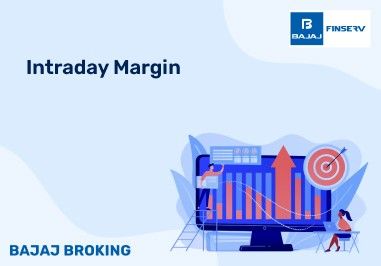BAJAJ BROKING
Swasth Foodtech India IPO is Open!
Q3 FY'25 Results of Top Companies!
Open a Free Demat Account
Trade Now, Pay Later with up to 4x
Track Market Movers Instantly
Why Do I Need a Trading Account?
The switch to electronic trading might have been prompted by the demat account, but it was the advent of the trading account that popularised it.
That said, if you’re a new investor, you may not be fully aware of the importance of a trading account. Read on to learn about the purpose of a trading account and why you need one to take part in the Indian stock market.
What is the Purpose of a Trading Account and How Does it Work?
The primary purpose of a trading account is to enable investors to place buy and sell orders for securities on the exchanges. A trading account is almost always linked with a demat account. This is done to make the purchase and sale of shares and other securities as seamless as possible.
Here’s a quick overview of how a trading account works. If, for example, you wish to purchase 100 shares of a particular company listed on an exchange, you first need to deposit the requisite funds into your trading account. You can do so by transferring funds to your trading account from your bank account.
Once your trading account is well-funded, you can then place a buy order for 100 shares of the company. The order is sent to the exchange for matching with a corresponding sell order. Once your buy order is executed, the 100 shares that you bought will be automatically transferred to the linked demat account for safekeeping.
When the time comes to sell the shares you hold in your demat account, all you need to do is place a sell order for the number of shares you intend to sell. Once the order is executed by the exchange, the shares that you sold are automatically transferred out of your demat account.
As you can see, the importance of a trading account cannot be stated enough. Without a demat and trading account, electronic trading at the speed and scale as we know it today would not be possible.
Why Do You Need a Trading Account?
Still wondering why you need a trading account? Here’s a closer look at some of the key reasons.
- It is mandatory to sell securities
You may not always need a trading account to purchase securities. A demat account is all you need to invest in the primary market – Initial Public Offerings (IPOs) and New Fund Offers (NFOs). To sell the securities in your demat account through stock exchanges, however, you mandatorily require a trading account. Without the account, you won’t be able to sell your investments to realise gains at all.
- It enables faster execution of trades
One of the many benefits of online trading accounts is the ability to execute trades rapidly and in quick succession. In fact, all it takes is just a few seconds to place a buy or a sell order. And since there’s no limit to the number of trades that you can place within a day, you can purchase and sell securities as you see fit.
- It promotes price transparency
Another major advantage of a trading account is that it gives you detailed information regarding the various bids and asks for a particular asset. Having the prices of assets available in a transparent manner lets you plan your trades better and manage your risk more effectively.
- It lets you trade in multiple segments
This is one of the primary reasons why you need a trading account. Equity is far from the only segment that you can trade in the Indian stock market. There are other trading segments such as bonds, mutual funds, Exchange Traded Funds (ETFs), commodities, currencies and derivatives as well. With a trading account, you don’t have to limit yourself to just stocks. Instead, you can also simultaneously trade in these other segments as well.
- It enables you to place different kinds of orders
Similar to how there are multiple trading segments in the Indian stock market, there are various order types as well. This includes intra-day orders, delivery orders, limit orders, market orders, Good Till Triggered (GTT) orders, pre-market orders and after-market orders. With a trading account, you get the freedom and flexibility to place just the kind of order your trading plan dictates.
- It lets you monitor your positions and investment portfolio
The ability to quickly get the status of your investment portfolio and open positions is another reason why you need a trading account. Every account, irrespective of the stockbroker, gives you a detailed account of all your holdings.
This includes the price at which the security was originally purchased, the current market price, the number of units you’re holding and the unrealised profit or loss. Since all of the relevant information regarding your portfolio is presented to you in a neat and orderly fashion, you get to save time and effort.
- It provides you with in-depth trading insights
Most trading accounts these days offer insightful data on market movements and individual stocks. From research reports and trading calls to market overviews and corporate actions, a trading account provides a lot of useful and actionable information. As an investor, you can use this to your advantage and plan your trades accordingly.
- It gives you an overview of your trades
One of the benefits of a trading account is that all your trades are recorded meticulously and in a detailed manner. At any point in time, you can quickly retrieve your trading statements for any particular period. Furthermore, you can also download other reports such as your profit and loss statements, capital gains statements, contract notes and margin reports, among others.
Conclusion
Trading accounts, when they were first introduced, were just a platform for purchasing and selling securities on the exchange. However, of late, it has evolved into more of an advisory portal offering insightful information about your trades and the market as a whole. Nevertheless, the increase in the scope has only served to enhance the importance of the trading account.
Share this article:
Read More Blogs
Our Secure Trading Platforms
Level up your stock market experience: Download the Bajaj Broking App for effortless investing and trading













